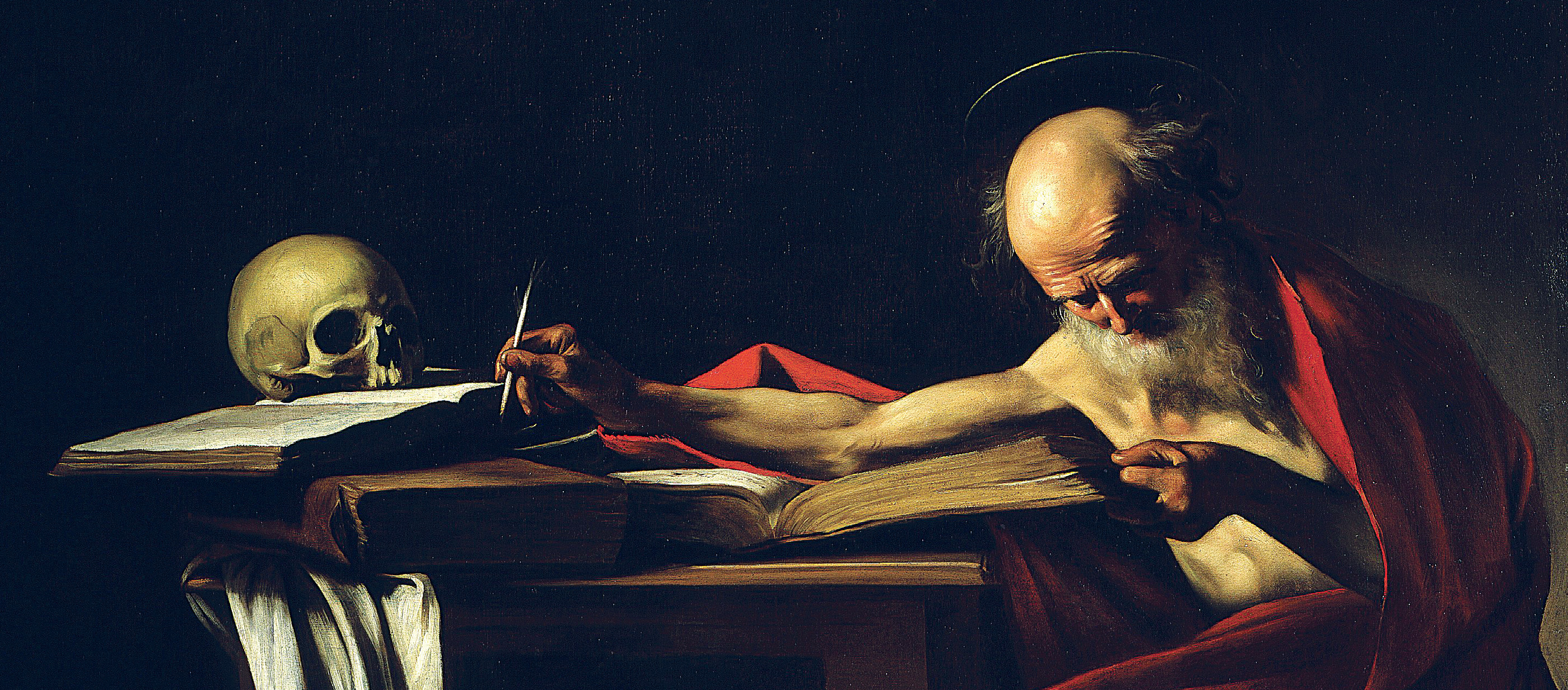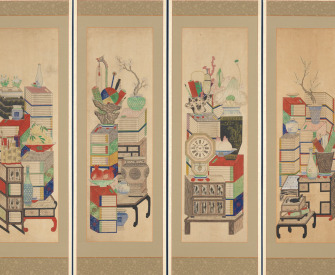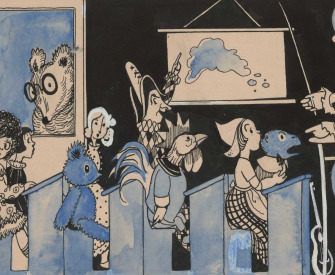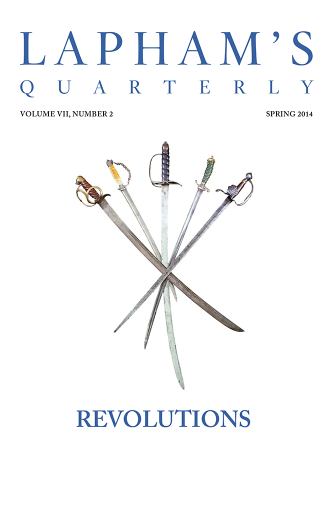Anyone who has a child should train him to be either a physicist or a ballet dancer. Then he’ll escape.
—W.H. Auden, 1947Reading List
John Stuart Mill turns the page.
I have no remembrance of the time when I began to learn Greek. I have been told that it was when I was three years old. My earliest recollection on the subject is that of committing to memory what my father termed vocables, being lists of common Greek words with their signification in English, which he wrote out for me on cards.
Of grammar, until some years later I learnt no more than the inflexions of the nouns and verbs, but after a course of vocables, proceeded at once to translation; and I faintly remember going through Aesop’s Fables, the first Greek book which I read. The Anabasis, which I remember better, was the second. I learnt no Latin until my eighth year. At that time I had read, under my father’s tuition, a number of Greek prose authors, among whom I remember the whole of Herodotus, and of Xenophon’s Cyropaedia and Memorials of Socrates; some of the Lives of the philosophers by Diogenes Laërtius; part of Lucian; and Isocrates’ Ad Demonicum and Ad Nicoclem. I also read in 1813 the first six dialogues (in the common arrangement) of Plato, from the Euthyphron to the Theaetetus inclusive: which last dialogue, I venture to think, would have been better omitted, as it was totally impossible I should understand it. But my father in all his teaching demanded of me not only the utmost that I could do, but much that I could by no possibility have done. What he was himself willing to undergo for the sake of my instruction may be judged from the fact that I went through the whole process of preparing my Greek lessons in the same room and at the same table at which he was writing: and as in those days Greek and English lexicons were not, and I could make no more use of a Greek and Latin lexicon than could be made without having yet begun to learn Latin, I was forced to have recourse to him for the meaning of every word which I did not know. This incessant interruption he, one of the most impatient of men, submitted to, and wrote under that interruption several volumes of his History and all else that he had to write during those years.
The only thing besides Greek that I learnt as a lesson in this part of my childhood was arithmetic. This also my father taught me: it was the task of the evenings, and I well remember its disagreeableness. But the lessons were only a part of the daily instruction I received. Much of it consisted in the books I read by myself and my father’s discourses to me, chiefly during our walks. From 1810 to the end of 1813 we were living in Newington Green, then an almost rustic neighbourhood. My father’s health required considerable and constant exercise, and he walked habitually before breakfast, generally in the green lanes toward Hornsey. In these walks I always accompanied him, and with my earliest recollections of green fields and wild flowers is mingled that of the account I gave him daily of what I had read the day before. To the best of my remembrance this was a voluntary rather than a prescribed exercise. I made notes on slips of paper while reading and from these, in the morning walks, I told the story to him; for the books were chiefly histories, of which I read in this manner a great number: Robertson’s histories, Hume, Gibbon. But my greatest delight, then and for long afterward, was Watson’s Philip the Second and Third.

Saint Jerome Writing, by Michelangelo Caravaggio, 1606. Galleria Borghese, Rome, Italy.
The heroic defence of the Knights of Malta against the Turks and of the revolted provinces of the Netherlands against Spain excited in me an intense and lasting interest. Next to Watson, my favorite historical reading was Hooke’s history of Rome. Of Greece I had seen at that time no regular history except school abridgments and the last two or three volumes of a translation of Rollin’s Ancient History, beginning with Philip of Macedon. But I read with great delight Langhorne’s translation of Plutarch. In English history beyond the time at which Hume leaves off, I remember reading Burnet’s History of His Own Time, though I cared little for anything in it except the wars and battles, and the historical part of the Annual Register from the beginning to about 1788, where the volumes my father borrowed for me from Mr. Bentham left off. I felt a lively interest in Frederick of Prussia during his difficulties and in Paoli, the Corsican patriot; but when I came to the American War, I took my part, like a child as I was (until set right by my father), on the wrong side, because it was called the English side. In these frequent talks about the books I read, he used, as opportunity offered, to give me explanations and ideas respecting civilization, government, morality, and mental cultivation, which he required me afterward to restate to him in my own words. He also made me read and give him a verbal account of many books which would not have interested me sufficiently to induce me to read them of myself: among others, Millar’s Historical View of the English Government, a book of great merit for its time and which he highly valued; Mosheim’s Ecclesiastical History, McCrie’s Life of John Knox, and even Sewell’s and Rutty’s histories of the Quakers. He was fond of putting into my hands books which exhibited men of energy and resource in unusual circumstances struggling against difficulties and overcoming them: of such works I remember Beaver’s African Memoranda and Collins’ account of the first settlement of New South Wales. Two books which I never wearied of reading were Anson’s Voyage, so delightful to most young persons, and a collection (Hawkesworth’s I believe) of voyages round the world in four volumes, beginning with Drake and ending with Cook and Bougainville. Of children’s books, any more than of playthings, I had scarcely any except an occasional gift from a relation or acquaintance: among those I had, Robinson Crusoe was preeminent and continued to delight me through all my boyhood. It was no part however of my father’s system to exclude books of amusement, though he allowed them very sparingly. Of such books he possessed at that time next to none, but he borrowed several for me; those which I remember are the Arabian Nights, Cazotte’s Arabian Tales, Don Quixote, Miss Edgeworth’s Popular Tales, and a book of some reputation in its day, Brooke’s Fool of Quality.
In my eighth year I commenced learning Latin in conjunction with a younger sister, to whom I taught it as I went on and who afterward repeated the lessons to my father. From this time, other sisters and brothers being successively added as pupils, a considerable part of my day’s work consisted of this preparatory teaching. It was a part which I greatly disliked; the more so as I was held responsible for the lessons of my pupils in almost as full a sense as for my own. I however derived from this discipline the great advantage of learning more thoroughly and retaining more lastingly the things which I was set to teach; perhaps, too, the practice it afforded in explaining difficulties to others may even at that age have been useful. In other respects, the experience of my boyhood is not favorable to the plan of teaching children by means of one another. The teaching, I am sure, is very inefficient as teaching, and I well know that the relation between teacher and taught is not a good moral discipline to either. I went in this manner through the Latin grammar, and a considerable part of Cornelius Nepos and Caesar’s Commentaries, but afterward added to the superintendence of these lessons much longer ones of my own.
The Romans would never have found time to conquer the world if they had been obliged first to learn Latin.
—Heinrich Heine, 1827In the same year in which I began Latin I made my first commencement in the Greek poets with the Iliad. After I had made some progress in this way my father put Pope’s translation into my hands. It was the first English verse I had cared to read, and it became one of the books in which for many years I most delighted: I think I must have read it from twenty to thirty times through. I should not have thought it worthwhile to mention a taste apparently so natural to boyhood if I had not, as I think, observed that the keen enjoyment of this brilliant specimen of narrative and versification is not so universal with boys as I should have expected both a priori and from my individual experience. Soon after this time I commenced Euclid, and somewhat later, algebra, still under my father’s tuition.

John Stuart Mill
From his Autobiography. Political economist and philosopher, the prolific Mill published Principles of Political Economy in 1848, On Liberty in 1859, and Utilitarianism in 1861. He won a local seat in Parliament in 1865, refusing to canvass for his cause or to pander to the local businesses. Two years later he helped found the first women’s suffrage society in England.


